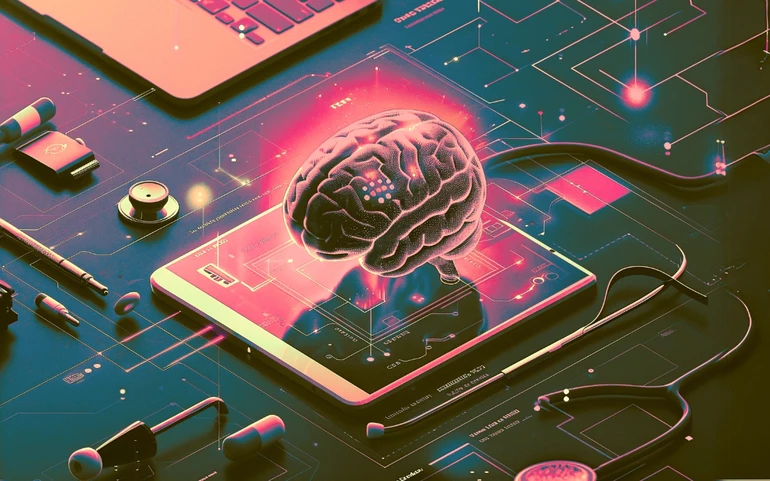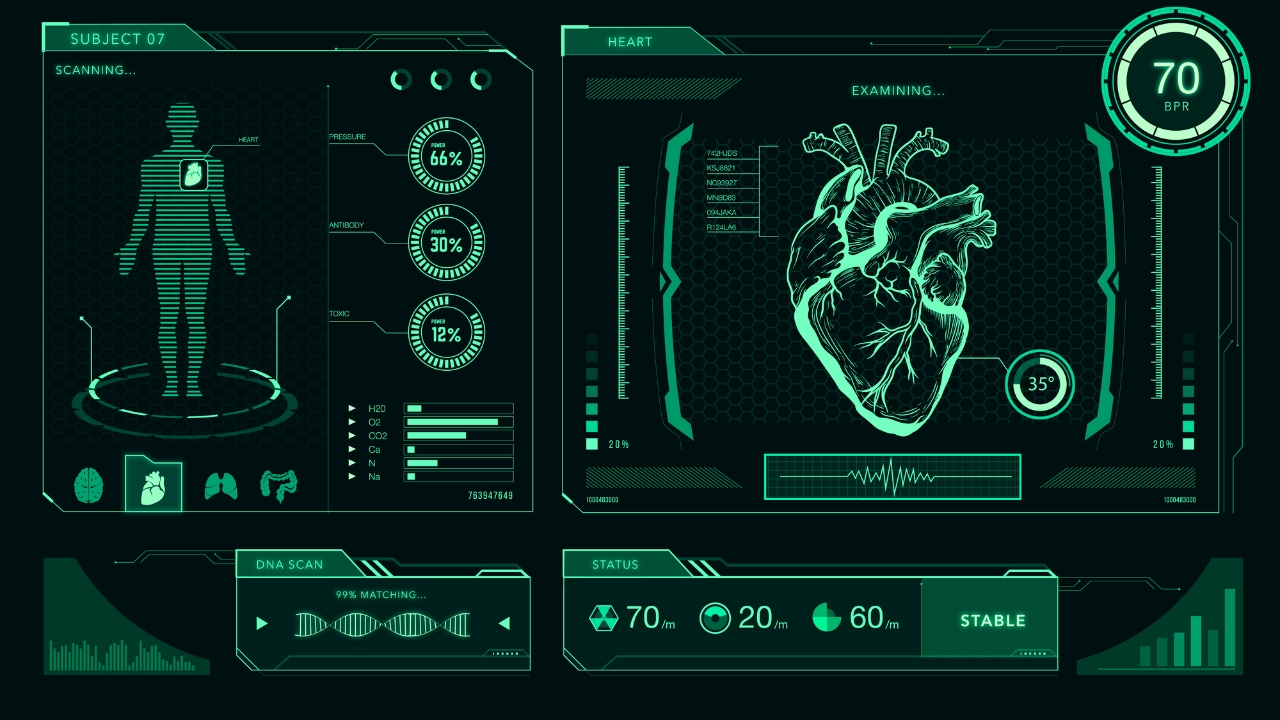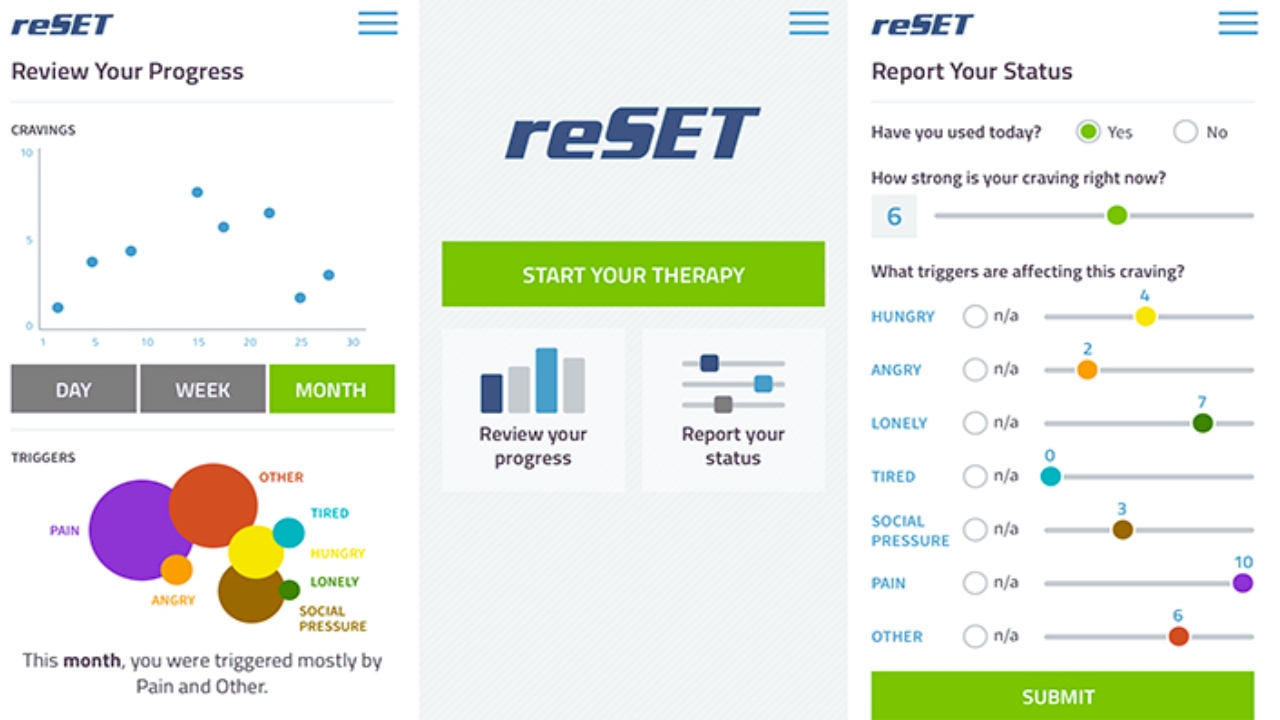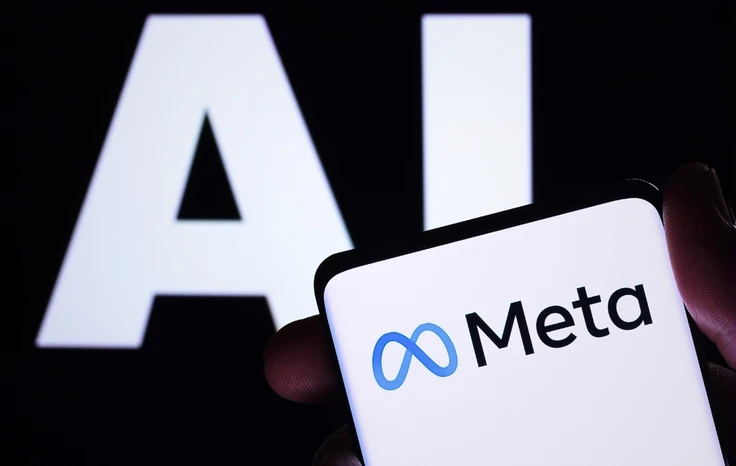What is a Botnet? Definition, Examples, How To Prevent
What are Digital Therapeutics (DTx)? Definition, Examples, Future

Modern healthcare is driven by technology. From AI-powered medical centres to digital wellness platforms, healthcare providers around the world rely on a range of health tech solutions to improve their physical and mental health.
One technology that is gaining traction in the health tech space is digital therapeutics (DTx), a new branch of medicine which uses evidence-based, clinically evaluated software to manage a broad range of diseases and disorders.
This article tells you everything you need to know about digital therapeutics, (DTx), including what it is, how it works, and how it is improving healthcare in 2024.
What is digital therapeutics (DTx)?
Digital therapeutics (DtX) are a new category of healthcare that uses software applications to treat, manage, or prevent a broad range of medical conditions and disorders.
This software is delivered through devices like smartphones, tablets, or even virtual reality (VR) to deliver evidence-based interventions. These interventions are clinically tested to show they have a positive impact on a patient's health
DTx can be used for a wide range of conditions, from chronic diseases like diabetes and anxiety to acute conditions like smoking cessation or insomnia.
They go beyond simple health trackers or informational resources by incorporating therapeutic elements:
1. Behavioral Change Techniques
These techniques are the backbone of many DTx programs, drawing inspiration from established psychological approaches like Cognitive Behavioral Therapy (CBT). They aim to help patients develop healthy habits, modify unhealthy behaviours, and improve coping mechanisms for managing their condition. Here are some examples:
- Goal Setting. Setting clear, achievable goals helps patients stay motivated and track progress.
- Self-Monitoring. DTx programs can use tools like mood trackers, symptom journals, or medication adherence trackers to empower patients to monitor their condition and identify patterns.
- Problem-Solving Skills. DTx programs can provide tools and exercises to help patients identify triggers for unhealthy behaviours and develop strategies to overcome them.
- Relaxation Techniques. Techniques like deep breathing, meditation, and guided imagery can be integrated into DTx programs to help patients manage stress and anxiety.
2. Biofeedback
This technique involves providing real-time feedback on physiological responses. DTx programs can utilize data from wearables or smartphone sensors to track metrics like heart rate, skin conductance, or muscle activity. This feedback allows patients to see how their thoughts and behaviours impact their physiology and helps them learn to manage their condition more effectively.

For instance, a DTx program for anxiety might use biofeedback to show a user how relaxation techniques affect their heart rate, helping them understand how to calm their body's response to stress.
3. Gamification
Many DTx programs incorporate elements of game design – think points, badges, leaderboards, and challenges – to make treatment more engaging and interactive. Gamification can increase user motivation and adherence to the program.
Here are some ways gamification is used in DTx:
- Points Systems. Completing daily tasks, tracking progress, or achieving goals can reward users with points that fuel a sense of accomplishment.
- Badges. Meeting milestones or completing challenges can unlock badges, providing a visual representation of progress.
- Leaderboards. Friendly competition with other users on a leaderboard can motivate individuals to stay on track and strive for improvement.
4. Educational Modules
Providing patients with relevant information about their condition is crucial for successful self-management. DTx programs can deliver educational content in various formats, including text articles, videos, animations, or interactive quizzes. Here's what educational modules might cover:
- Disease Overview. Understanding the underlying cause, symptoms, and risk factors empowers patients to take ownership of their health.
- Treatment Options. DTx programs can provide information about different treatment modalities and their potential benefits and side effects.
- Self-Management Strategies. The program can explain techniques and lifestyle modifications that can help manage the condition effectively on a daily basis.
These elements work together in a DTx program to create a comprehensive and engaging therapeutic experience for patients.
By combining behaviour change techniques, biofeedback, gamification, and education, DTx programs empower users to actively participate in their health journey.
Applications of DTx
DTX holds immense potential across a wide range of medical conditions. Here are some key applications of DTx is making significant strides:
1. Chronic Disease Management:
Chronic illnesses like diabetes, hypertension, and COPD (Chronic Obstructive Pulmonary Disease) are a major healthcare burden. DTX programs offer valuable tools to support patients in managing these conditions effectively.
- Medication Adherence: DTX programs can send reminders for medication intake, track adherence rates, and provide educational content on the importance of medication for managing the condition.
- Symptom Management: DTx programs can help patients identify triggers for symptom flare-ups and provide tools like relaxation techniques or guided imagery to manage them effectively.
- Lifestyle Modifications: DTX programs can offer personalized guidance on healthy eating habits, exercise routines, and stress management strategies, all crucial for the long-term management of chronic diseases.
3. Mental Health
Mental health conditions including anxiety, depression, and insomnia are becoming increasingly prevalent. DTX offers accessible and engaging interventions to support patients struggling with these issues.
- Cognitive Behavioral Therapy (CBT): DTX programs can deliver therapist-guided CBT exercises directly through mobile apps, empowering patients to challenge negative thoughts and develop coping mechanisms.
- Relaxation Techniques: Techniques like deep breathing exercises, progressive muscle relaxation, and mindfulness meditation can be integrated into DTX programs to help manage stress and anxiety.
- Sleep Hygiene Improvement: DTx programs can provide personalized sleep schedules, relaxation exercises before bed, and tools to track sleep patterns, promoting better sleep quality for individuals with insomnia.
Read more: Five Emerging Mental Health Tech Solutions
4. Musculoskeletal Disorders
Conditions like chronic pain, arthritis, and post-surgical recovery can significantly impact mobility and quality of life. DTX programs offer innovative ways to support patients through these challenges.
- Pain Management: DTX programs can incorporate biofeedback techniques to help patients understand how their thoughts and behaviours affect pain perception, empowering them to manage pain more effectively.
- Physical Therapy Rehabilitation: DTx programs can offer personalized exercise routines with video demonstrations and progress tracking, helping patients regain strength and mobility after injuries or surgeries.
5. Substance Abuse
DTX programs can be a valuable tool in supporting individuals seeking to overcome addiction or dependence on substances like tobacco.
- CBT Techniques: DTX programs can deliver CBT exercises to help users identify triggers, develop coping mechanisms, and resist cravings.
- Craving Management Tools: Techniques like deep breathing exercises or mindfulness prompts can be integrated to help users manage cravings in the moment.
- Social Support Features: DTX programs can connect users with online support groups or communities, fostering a sense of accountability and encouraging positive reinforcement.
- Pre-habilitation and Post-surgical Care:
DtX programs are increasingly being used to prepare patients for surgery (pre-habilitation) and support them during recovery (post-surgical care). These programs can:
- Improve Pre-surgical Fitness: Exercises and educational modules can help patients strengthen their bodies and improve overall fitness before surgery, leading to faster recovery.
- Pain Management Techniques: DTX programs can provide post-surgical pain management tools like relaxation techniques or biofeedback to help patients cope with pain more effectively.
- Rehabilitation Exercises: The programs can offer personalized rehabilitation exercises to guide patients through recovery and regain optimal function.
These are just a few applications of DTx. As the field progresses, we can expect DTx to play an increasingly important role in delivering personalized, accessible, and effective healthcare solutions across a wider spectrum of conditions.
Examples of DTx
1. Pear Therapeutics' reSET
Pear Therapeutics' reSET is a DtX program designed to help patients with Substance Use Disorder (SUD). It uses cognitive behavioural therapy techniques, motivational tools, and educational modules delivered through a smartphone app.
There are two versions of reSET:
- reSET. This version targets patients with SUD who are not primarily addicted to opioids.
- reSET-O. This version is specifically designed for Opioid Use Disorder (OUD) and is currently under review by the FDA with Breakthrough Designation.
reSET is delivered through a mobile app, allowing patients to access the program on their smartphones or tablets for convenient and ongoing support. The program complements clinician-delivered care, providing additional support and tools for patients to manage their recovery journey.

A separate clinician dashboard is also available, providing healthcare professionals with insights into patient progress, including reported substance use, cravings, and triggers. This allows for a more informed and data-driven approach to treatment during face-to-face consultations.
2. Akili's EndeavorRx
Akili’s Endeavor RX is a DtX program designed to treat children with ADHD. It uses neurofeedback principles, where the game adjusts difficulty based on a child's brain activity, training them to improve attention.
Unlike traditional medication used for ADHD, EndeavorRx doesn't involve any drugs. It utilizes a unique approach that combines:
- Neuroscience-based games: The program delivers a series of engaging and progressively challenging games designed to target specific aspects of attention, such as sustained focus, selective attention, and processing speed.
- Adaptive technology: The difficulty level of the games adjusts based on the child's performance, ensuring an appropriate level of challenge and promoting continuous improvement.
EndeavorRx is delivered through a mobile app, making it accessible and convenient for children to use on tablets or smartphones under parental supervision. The program is designed for daily use in 25-minute sessions for four consecutive weeks.
3. Lyra Health
Lyra Health offers Dtx programs for various mental health conditions like anxiety and depression. It uses therapist-designed interventions delivered through a mobile app, including CBT exercises, journaling prompts, and mood-tracking tools. Lyra Health designs Dtx programs to address common mental health concerns like anxiety, depression, and stress. Their platform connects users with licensed therapists and provides various therapeutic tools to support mental well-being.
A key feature is the platform's algorithm that matches users with licensed therapists based on individual needs and preferences. This personalized approach aims to connect users with the right therapist for their specific situation. Lyra Health programs also heavily leverage CBT techniques.
These techniques, delivered through the app or during virtual therapy sessions, help users identify and modify negative thought patterns that contribute to their mental health struggles.
4. Dario
The Dario DTx program focuses on chronic disease management, specifically Type 2 diabetes. It provides a connected blood glucose meter, educational content, and personalized coaching to help users manage their blood sugar levels effectively.
Dario programs often utilize connected devices like blood glucose meters or wearables to collect health data and provide real-time feedback. They also have a user-friendly mobile app that serves as the central hub for accessing program features, tracking progress, and interacting with coaches.This coincides with human coaching delivered through the app or phone calls, which offers personalized guidance and motivation to help users stay on track with their DTx program goals.
5. Therapix
Therapix concentrates on Dtx solutions specifically designed to address sleep issues like insomnia and circadian rhythm sleep-wake disorders. These disorders can significantly impact a person's overall health and well-being.
Cognitive Behavioral Therapy for Insomnia (CBT-I) is a core component of many Dtx programs for insomnia. CBT-I helps users identify and modify negative thoughts and behaviours that contribute to sleep problems.
the program might offer educational modules on healthy sleep habits, such as creating a regular sleep schedule, establishing a relaxing bedtime routine, and optimizing the sleep environment.
6. Livongo
Livongo is a specific Dtx program designed to help people with diabetes, particularly Type 1 and Type 2, manage their condition more effectively. It utilizes a combination of tools and features delivered through a mobile app and connected devices to provide comprehensive support
Livongo primarily caters to individuals diagnosed with Type 1 or Type 2 diabetes who are already under the care of a healthcare professional. It provides a Bluetooth-enabled blood glucose meter that allows users to conveniently track their blood sugar levels throughout the day.
The program also provides access to certified diabetes coaches who offer ongoing support and motivation via phone calls or secure messaging within the app. These coaches can help users with:
- Interpreting blood sugar data.
- Adjusting insulin dosages (under doctor supervision).
- Developing healthy lifestyle habits like diet and exercise modifications.
- Problem-solving challenges related to diabetes management.
Future of Digital Therapeutics
The future of digital therapeutics (DtX) appears bright, with vast potential to revolutionize healthcare delivery. The future lies in Dtx programs that integrate various therapeutic elements – behaviour change techniques, biofeedback, gamification, and educational modules – tailored to an individual's specific needs and condition.
Advancements in AI and the rise of Large Language Models (LLMs) and Machine Learning (ML) will enable DTx programs to personalize recommendations, interventions, and coaching based on a user's real-time health data, preferences, and progress.
This means that DTx programs are likely to move beyond managing chronic diseases and explore applications in mental health, neurological disorders, and even post-surgical rehabilitation. DtX programs will also likely be integrated with remote patient monitoring systems, allowing healthcare professionals to track patient progress and intervene when necessary.
Overall, there will be a growing emphasis on Dtx programs proving their clinical value and cost-effectiveness to gain wider adoption and reimbursement from healthcare payers.
























